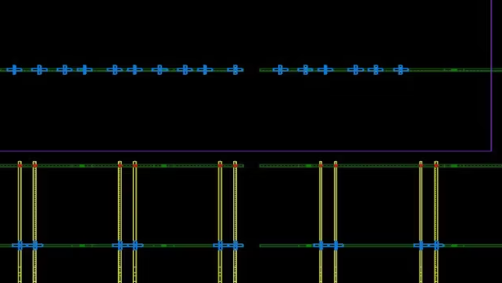In response to Dick Selwood’s recent article “Lawyers, Bankers, and Engineers”, I want to take a different (and perhaps controversial) stand: We need MORE lawyers. (The torch mob can form on the left, now. Please stand by, and take a number.) That’s right, I said it. The world doesn’t have nearly enough well-trained legal experts to keep pace with the incredible demands being created… mostly by our community of engineers.
Over the past few decades, engineers have pushed technology ahead at breakneck pace. We’ve literally changed the world – and our complex system of laws and rules has been left in the dust. Engineers created things like the atom bomb, the internet, airplanes, surveillance cameras, mobile phones – the list goes on forever. The cumulative effect of these innovations on society is enormous. Many of these inventions have also completely invalidated existing systems of laws and rules – from personal privacy to intellectual property protection to questions of taxation and legal jurisdiction.
Before the Internet, music recordings were easy enough to define, protect, and police. As a musician, you recorded your music and sold CDs. If somebody copied your CD, they broke the law. Simple enough. With the arrival of the Internet, the idea of a “copy” was turned on its head. As we all know, music recordings now exist in a wormhole of multi-dimensional legal chaos. If you download a song onto your laptop and then play it on your MP3 player, you’ve just made copies. Legal? Not sure? The invention of massive music file-sharing capability famously broke a system of laws that was not prepared for the technological innovation. As a result, huge segments of the population joined a mass hysteria that basically resulted in copyright violation and theft on a monumental scale. Struggling musicians were robbed blind – mainly because the legal system couldn’t adapt fast enough to changes in technology.
We engineers have pretty much obliterated the existing notions of individual privacy as well. With people sharing information on social media, walking around with GPS devices continually logging their position and monitoring their every communication, and moving about in a landscape littered with surveillance cameras, who decides where one’s right to privacy exists? Certainly our old laws never contemplated the world in which we now live. Can the state subpoena twitter? Can someone ask for your facebook password in a job interview? Can the police track your position based on your mobile device? Does facebook own your photos? All of these are new, complex legal problems that need to be solved – by expert legal engineers.
Our quaint patent system – certainly much maligned in these pages – was created in an age of minimal collaboration. It was based on a notion of an “inventor” in a garage, creating a useful thing – almost independent of the work of others. This system has been absolutely crushed by the modern era of massively collaborative innovation carried out by loose clusters of enormous engineering teams – working at multiple international corporations – and doing derivative work whose complex tendrils weave deep into the past and extend blindly into the future. The pace of innovation forseen by those trying to protect Whitney’s Cotton Gin long enough so old Eli could get a good return on his engineering effort was a couple of decades – or to put it another way, about half of the entire length of the modern era of Moore’s Law exponential change. In order to keep pace with today’s technological progress, a complete re-thinking of the fundamental patent system and operating frequency needs to be engineered.
Lawyers haven’t completely failed in dealing with the fusillade unleashed on them by the engineering world. In the examples above, when the pace of legislation was FAR too slow to be of any real help, lawyers crafted new types of contracts and agreements to fill the gap. When studios wanted to release movies on DVD format, many discovered that they didn’t have music rights for DVD distribution. They had never envisioned the existence of the new format, so they had licensed the music for things like “VHS tape”. Today, many contracts contain more progress-aware boilerplate like: “on all media now known or hereafter devised”. This list of legal patches looks like the bug tracking system for Microsoft Windows. The legal workarounds are often ugly and unwieldy, but they usually work well, and they’re the only option in the wake turbulence left in the legal system behind our massive technological juggernaut.
These are just a few examples of the enormous challenge our society faces in creating, interpreting, and enforcing its laws in the face of radical technological changes. It’s serious business – as our ability to govern ourselves through agreed rules is the only thing separating us from a pretty nasty state of nature. In light of this challenge, we need the best experts we can find – and a lot of them – to design social systems that can take full advantage of, and protect us from, our own propensity for innovation and progress. We need more lawyers, not fewer.




